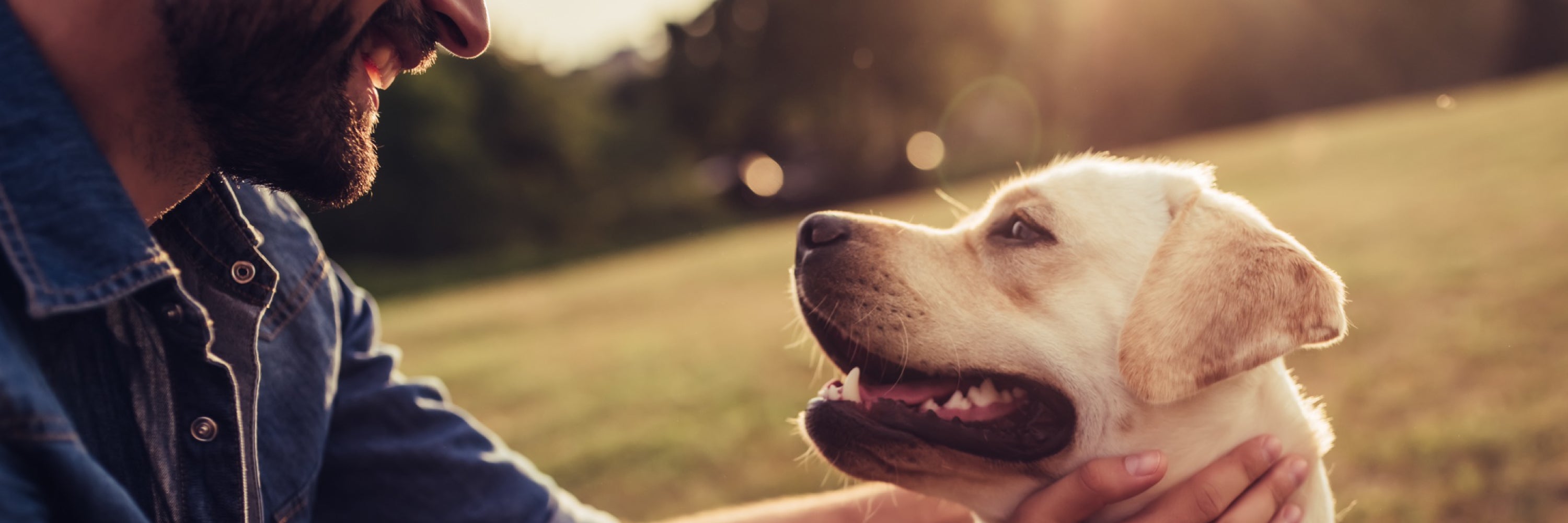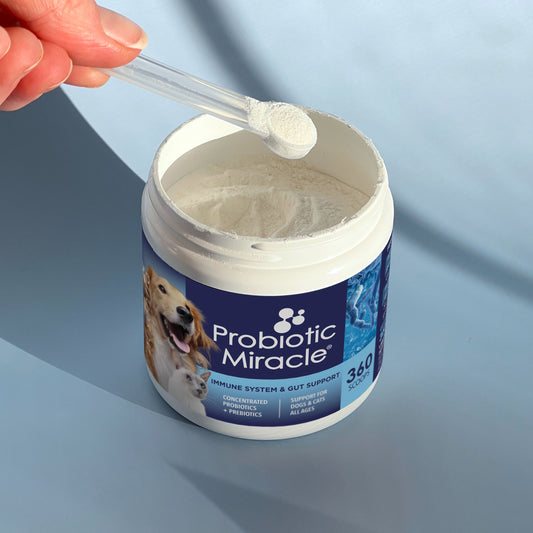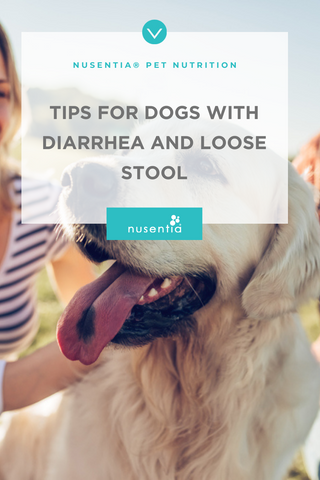
Tips for Dog Diarrhea & Loose Stool
Welcome to our guide designed to support your pet's health naturally. Find a carefully curated selection of natural supplements below as well as tips to further assist you in managing Dog Diarrhea & Loose Stool holistically.
-
 Sale
SaleProbiotic Miracle®
Regular price From $25.95Regular priceUnit price / per$29.95Sale price From $25.95Sale
Collection: Dog Diarrhea & Loose Stool
"My dog always has loose, mushy stools. How can I help my dog have firmer stools without medications?"
When your dog has diarrhea or loose stool, it is an opportunity to improve his gut health.
Overview
Probiotics
Loose stool and diarrhea suggest an imbalance in the gut. For improvement, we recommend therapeutic doses of probiotics, Probiotic Miracle®, to restore the natural balance of beneficial flora.
What is diarrhea and loose stool?
Diarrhea, or loose stool, are essentially different intensities of the same problem. They are defined by the passage of loose, watery, or unformed stools. It's often accompanied by an increased volume and frequency of bowel movements, primarily due to the rapid transit of food through the intestine.
A mild form of diarrhea is known as loose stool, with similar treatment approaches for both conditions in dogs.
Cause of diarrhea in dogs
Common causes include poor diets leading to conditions like leaky gut, food intolerances, or weakened immune health, promoting harmful bacterial growth (e.g., C. difficile). Problematic foods may include beef, chicken, fish, eggs, and certain commercial dog foods, among others.
Certain medications, especially antibiotics, can lead to loose stools and diarrhea as well as they disrupt the gut microbiome.
Related: Your Dog is on Antibiotics, What To Do Next
Natural remedies for diarrhea and loose stools
-
Probiotics
Probiotics like Probiotic Miracle® are key for treating diarrhea, improving food tolerances, and addressing other causes such as infections or digestive imbalances.
-
Enzymes (optional)
Add a digestive enzyme like Enzyme Miracle® if you notice:
- Dog is losing weight
- Stools are large, gray, and foul-smelling
- Multiple large stools passed in a day
-
Water
Ensure your dog stays hydrated to help the colon flush out toxins, as dehydration is a common complication of diarrhea.
-
Low-fat diet
Temporarily switch to a low-fat diet, splitting food into three meals for the first couple of days before returning to the regular diet.
Conclusion
Managing your dog's diarrhea or loose stools involves a careful blend of diet modification, hydration, and the addition of probiotics and possibly enzymes to their daily regimen. Through these natural remedies, you can help restore your dog's digestive health and achieve firmer stools. Remember, if your dog's condition persists or worsens, it's important to consult with a veterinarian for further guidance and treatment options. By taking proactive steps and utilizing supplements like Probiotic Miracle®and Enzyme Miracle®, you can support your dog's gut health and overall well-being.


